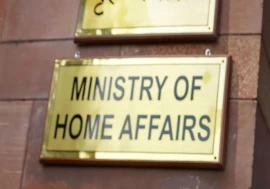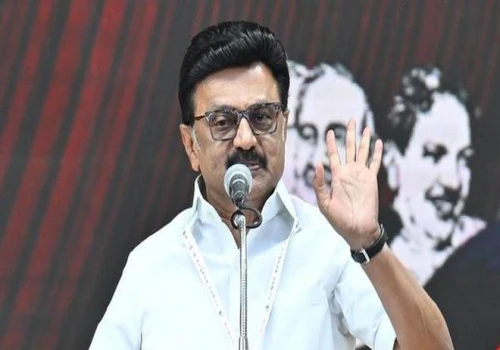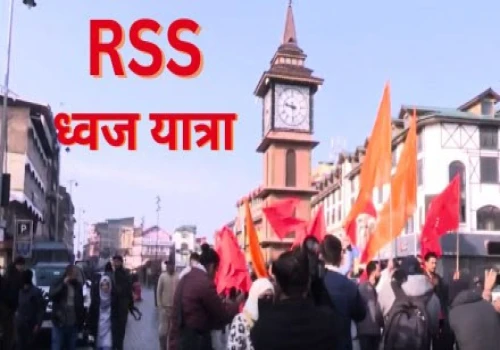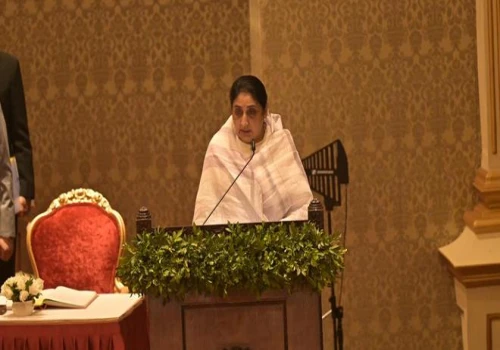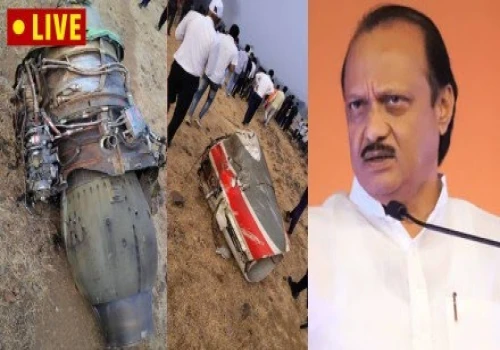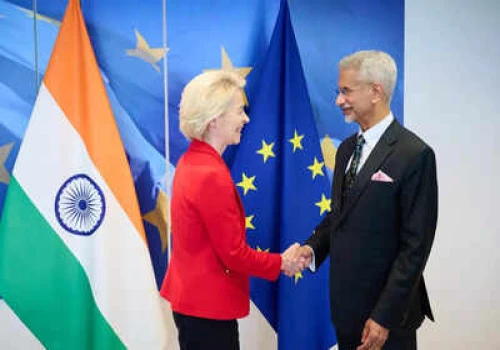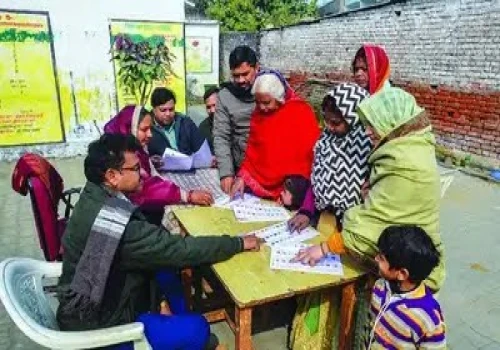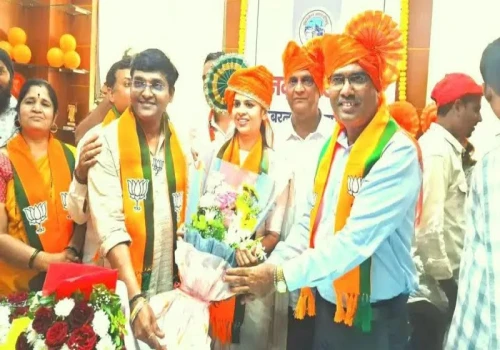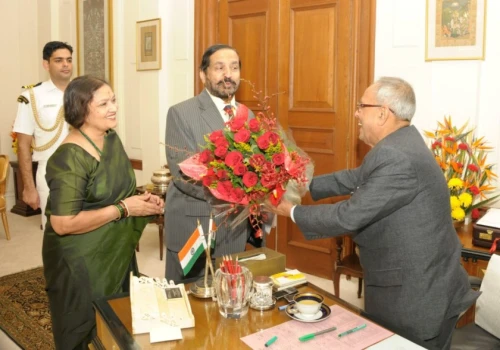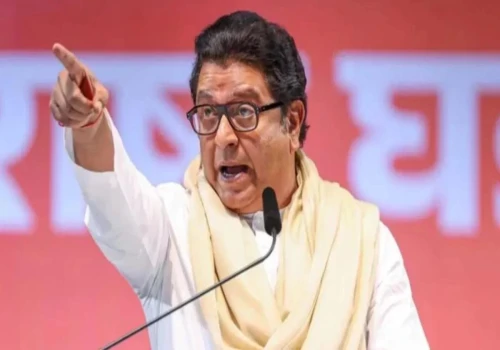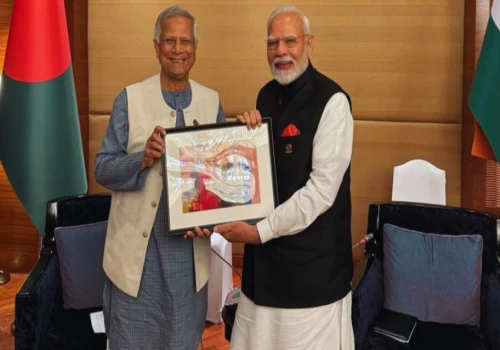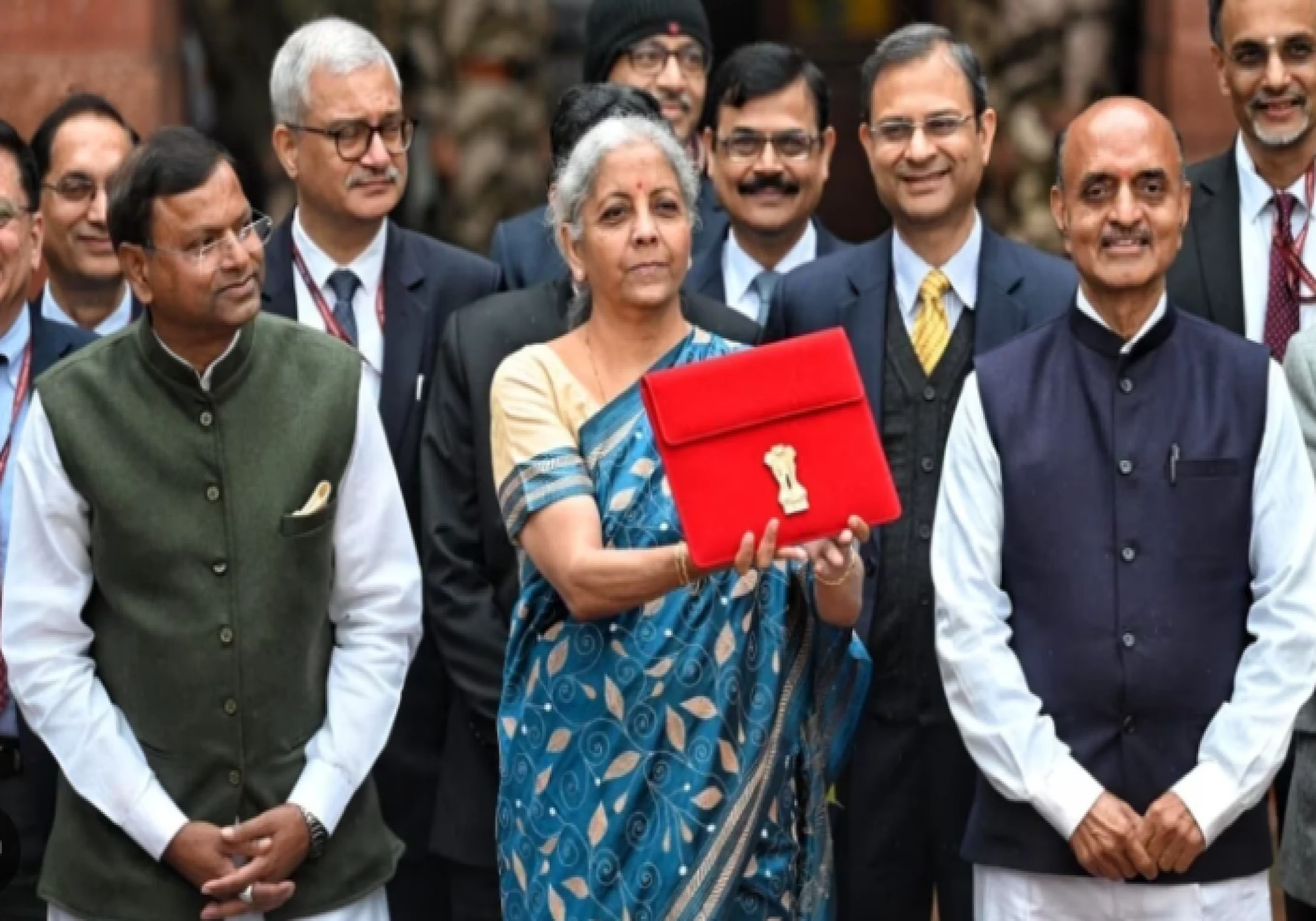
New Delhi: In a power-packed address to the nation, Finance Minister [Name], presented the first part of the Interim Budget for 2024-25, showcasing a decade of transformative changes in the Indian economy. The budget speech highlighted the achievements and future vision under the dynamic leadership of Hon’ble Prime Minister Shri Narendra Modi.
1. A Decade of Progress
The Finance Minister began by acknowledging the profound positive transformation witnessed in the Indian economy over the last ten years. The government, under the visionary leadership of Prime Minister Modi, faced enormous challenges in 2014 but successfully implemented structural reforms and pro-people programs, creating conditions for increased employment and entrepreneurship. In the second term, the government focused on comprehensive development, emphasizing ‘Sabka Saath, Sabka Vikas, and Sabka Vishwas.' The approach covered social inclusivity and geographical inclusivity, leading to the country overcoming challenges posed by the once-in-a-century pandemic.
2. Inclusive Development and Growth
The Finance Minister emphasized the government's inclusive approach to development, departing from the earlier method of 'provisioning up-to-village level.' Over the last decade, development programs targeted every household and individual, addressing issues like housing, water, electricity, cooking gas, and financial services for all. Worries about food security were addressed through free ration for 80 crore people, and minimum support prices for farmers were increased, enhancing real income in rural areas. This inclusive development approach spurred economic growth and generated jobs.
3. Social Justice as Governance Model
The government's commitment to social justice was highlighted as a departure from a mere political slogan to an effective governance model. The saturation approach, covering all eligible people, was termed a comprehensive achievement of social justice, promoting secularism, reducing corruption and preventing nepotism. The Finance Minister stressed the focus on outcomes rather than outlays to achieve socio-economic transformation, with a special emphasis on the welfare of the 'Garib' (Poor), 'Mahilayen' (Women), 'Yuva' (Youth), and 'Annadata' (Farmer).
4. Garib Kalyan, Desh ka Kalyan
Empowering the poor was at the forefront of the government's agenda. The Finance Minister highlighted the success of the 'Direct Benefit Transfer' of 34 lakh crore, leading to significant savings of 2.7 lakh crore by avoiding leakages. Initiatives like PM-SVANidhi and PM-JANMAN Yojana were instrumental in providing credit assistance to street vendors and reaching out to vulnerable tribal groups.
5. Welfare of Annadata
Farmers, referred to as 'Annadata,' received special attention with direct financial assistance under PM-KISAN SAMMAN Yojana. Crop insurance under PM Fasal Bima Yojana, the integration of mandis into the Electronic National Agriculture Market, and farmer-centric policies were highlighted as key contributors to the inclusive, balanced growth of the agriculture sector.
6. Empowering Amrit Peedhi, "the Yuva"
The Finance Minister emphasized the importance of adequately equipping and empowering the youth. Initiatives like the National Education Policy 2020, PM SHRI, Skill India Mission, PM Mudra Yojana, and schemes like Fund of Funds, Start Up India, and Start Up Credit Guarantee were highlighted as instrumental in nurturing a skilled and entrepreneurial youth population. The achievements of Indian youth in sports, including the highest-ever medal tally in Asian Games and Asian Para Games, were celebrated, showcasing the country's confidence on the global stage.
7. Momentum for Nari Shakti
Women empowerment through entrepreneurship, education, and dignity gained momentum over the last decade. The Finance Minister highlighted the success of Mudra Yojana loans to women entrepreneurs, increased female enrolment in higher education, and the positive impact of legal measures like making 'Triple Talaq' illegal.
8. Exemplary Track Record of Governance, Development, and Performance (GDP)
The Finance Minister concluded the first part of the budget speech by emphasizing the government's commitment to a comprehensive 'GDP,' including Governance, Development, and Performance. The impact of all-round development was evident in macro-economic stability, robust investments, and improved living standards. The average real income of the people increased by fifty percent, and there was effective and timely delivery of programs and large projects. The Finance Minister highlighted the success of the 'citizen-first' and 'minimum government, maximum governance' approach, positioning India for sustained growth and development.
9. Economic Development Strategies
The government outlines its multipronged economic management approach over the past decade, highlighting the success of people-centric inclusive development. Key elements include infrastructure development, formalization of the economy through Digital Public Infrastructure, and the positive impact of Goods and Services Tax (GST) and financial sector strengthening.
10. Global Landscape and G20 Leadership
Acknowledging the complexity of global affairs, the statement discusses India's leadership during its G20 Presidency amid challenges like high inflation, low growth, and climate issues. The recently announced India-Middle East-Europe Economic Corridor is positioned as a strategic game-changer with global implications.
11. Vision for 'Viksit Bharat'
The government envisions a 'Viksit Bharat' characterized by prosperity, modern infrastructure, and equal opportunities for all citizens. Confidence is expressed in achieving unprecedented development in the next five years, backed by demography, democracy, and diversity.
12. 'Amrit Kaal' Strategy
The 'Amrit Kaal' strategy focuses on economic policies fostering growth, inclusivity, and sustainability. Guided by 'Reform, Perform, and Transform,' the government commits to next-generation reforms, emphasizing support for MSMEs, aspirational districts, and development in the Eastern region.
13. Healthcare Initiatives
Healthcare takes center stage with plans for additional medical colleges, cervical cancer vaccination, and comprehensive maternal and child care programs. The government also introduces schemes for housing the middle class and promoting rooftop solarization for free electricity.
14. Agriculture and Food Processing
Efforts to boost farmers' income, reduce post-harvest losses, and promote private and public investment in agriculture are emphasized. Schemes like 'Nano DAP' and 'Atmanirbhar Oil Seeds Abhiyan' aim to transform the agricultural sector.
15. Technological Advancements
The government commits to strengthening the technological ecosystem, introducing a one lakh crore rupee corpus for innovation, and launching a scheme for deep-tech technologies in defense. Emphasis is placed on bio-manufacturing and bio-foundry to align with regenerative principles.
16. Infrastructure Development
Highlighting the massive tripling of capital expenditure outlay, the statement discusses plans for three major railway corridor programs, aviation sector development, and expansion of metro rail and NaMo Bharat to catalyze urban transformation.
17. Fiscal Estimates and Tax Proposals
The fiscal estimates for 2023-24 and budget estimates for 2024-25 are presented, emphasizing the commitment to fiscal consolidation. Tax proposals include an extension of benefits for start-ups and investments. The government aims to withdraw outstanding direct tax demands to ease the burden on taxpayers.
18. Reflection on Economic Journey
The statement concludes by reflecting on the economic journey from 2014, emphasizing the exemplary track record of governance, development, and performance. A White Paper on the economy's then-and-now scenario will be presented, expressing confidence in realizing the goal of a developed India.


